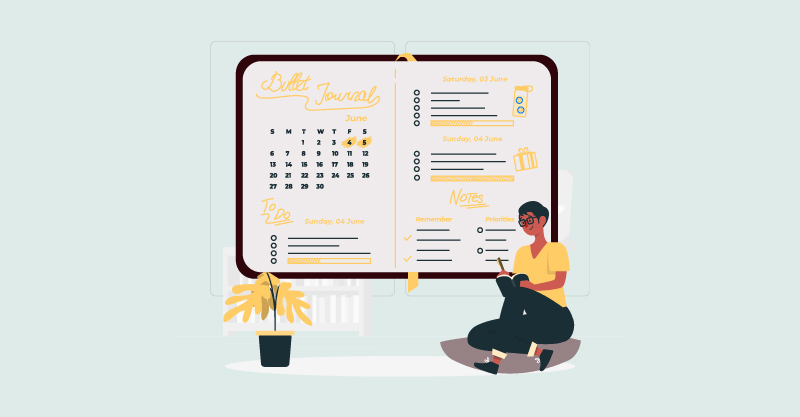As simple as putting your thoughts on a paper might sound, there are so many ways to go about it. Your mind may seem like a whirlpool of emotions. There are ways to address and analyze them so that you can understand them better to gain a sense of clarity.
A great way to cope with stress and mental health issues is to start journaling. Whether you use a notebook or an online journaling app, writing down your thoughts can help you feel less stressed and more in control of your emotions. But many people wonder which type of journaling, CBT journaling or guided journaling, might be better suited to their needs. To help you decide which option might be right for you, let’s look at the differences between these two forms of journaling and what they have to offer both beginners and seasoned writers alike.
1. What is a Guided Therapy Journal?
A guided journal is a type of journal that provides prompts and questions to help guide your writing. This can be helpful if you find it difficult to know what to write about or if you want to explore a specific topic in depth. Guided journals can be used for personal reflection, goal setting, and problem solving.
For those of you that have a talent of staring fruitlessly at blank pages, this journal is nothing short of a genie that gets your creative juices flowing. Guided journals offer you simple prompts that help in self reflection. They take you to a deeper level of thinking through easy-to-answer questions. It gives a structure to your freeform chain of thought, and provides a start button for your writing.
The prompts can range from intensely thought provoking questions to the most basic things like “What did you eat today?” The series of questions might lead to a greater understanding of the situation, and instill a sense of consciousness in your mind. With reflective writing prompts and structured questions, guided journaling can be an effective way to commit to mental wellness.
2. What is a CBT Guided Journal?
Cognitive Behavioral Therapy, or CBT, is a science-backed form of therapy that focuses on changing negative thinking patterns in order to improve mental health. This form of journaling is based upon thought patterns and behaviors for better understanding of the mind. It increases self awareness by focusing on individual ways of thinking, doing, and feeling, and also gives you the tools to change these processes if necessary.
If you’re an overthinker who is constantly analyzing situations and people around you, this journal is your rescue. It will feed your curious mind and help you in recognising your patterns through the ABC model of cognition used in psychotherapy. It’s designed for anybody who is keen on knowing themselves more, and trying to be the best version of themselves by redirecting negative emotions.
Cognitive Behavioral Therapy vs. Guided Journaling
Cognitive Behavioral Therapy (CBT) and journaling are both great tools for managing mental health, but they approach things differently. CBT focuses on changing negative thought patterns in order to change behavior. Guided journaling, on the other hand, allows you to explore your thoughts and feelings without judgment. It’s a way of getting to know yourself better, while providing support and insight that can help guide a more healthy lifestyle. With guided journaling, you may uncover the root of an issue that’s been bothering you or find an actionable solution to a problem. It’s different from CBT because it doesn’t focus on looking at everything through an analytical lens – instead it encourages open-mindedness and empathy as part of its process. The act of writing helps us get our thoughts out onto paper so we can look at them more objectively, while also helping us understand how we feel about those ideas and emotions.
Guided journals are great for mental health. If you’re struggling with anxiety, depression, or other mental health issues, you might be wondering whether guided journaling or CBT journaling is right for you. Both approaches can be helpful, but they’re different in some key ways. There is no right or wrong way while selecting which journal or prompt will work best for you. The best guided journals for mental health are the ones that match your need & comfort.









